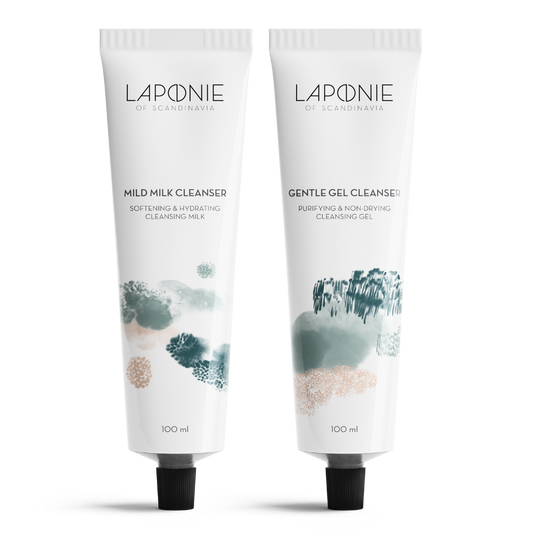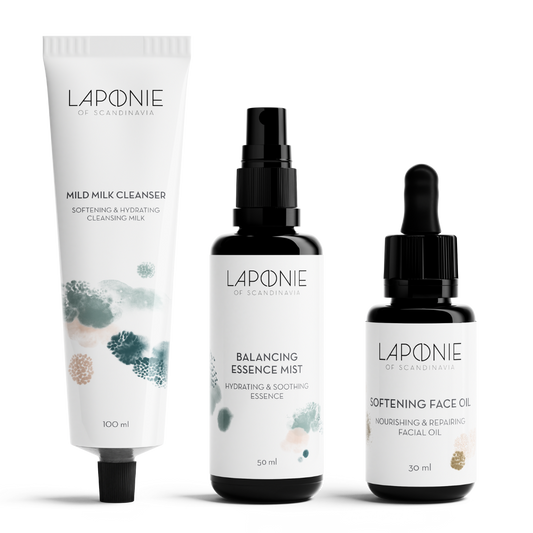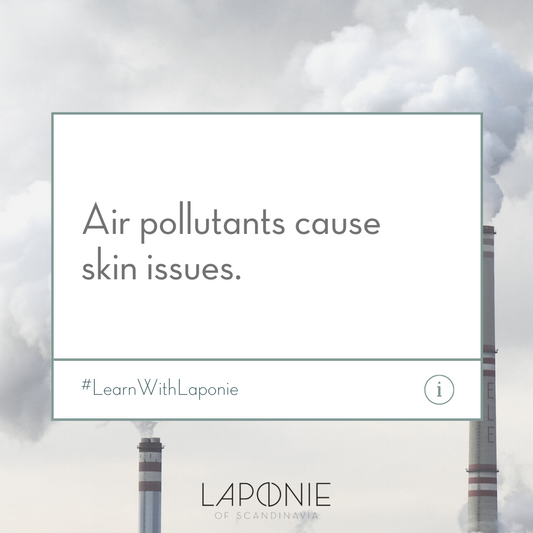What are air pollutants?
Air pollutants are particulate or gaseous substances that are harmful to health. Usually, the definition of air pollution is that the amounts of certain pollutants in air are so high that they pose a risk to human health, the environment and cultural heritage monuments. Some of the pollutants floating around can be born naturally in, for example, through forest fires and volcanic eruptions, but the majority of chemical emissions in the air are caused by humans. The most harmful air pollutants are e.g., nano-particles, PAH-compounds, tobacco smoke, heavy metals, sulfur and nitrogen dioxide, VOC-compounds and ozone.
The link between air pollutants and skin issues
Even though the antipollution phenomenon has only very recently gained more awareness and scientific research is still minimal, some convincing evidence exists that air pollutants are in fact harmful to human skin. Exposure to air pollution seems to cause so called oxidative stress, inflammation and barrier dysfunction of skin. According to studies, long-term exposure to air pollution causes signs of premature aging, such as wrinkles and pigment spots. There is also a connection to some skin diseases such as atopic eczema, psoriasis and acne. Read more about the effects of pollutants on skin here.
How do pollutants end up in our bodies and our skin?
Pollutants can make their way into our bodies in various ways. Air pollutants can possibly penetrate through damaged skin, but studies on healthy skin aren't unanimous. It's been suggested, that possible pollutant entryways into skin could be e.g. penetration and absorption via hair follicles and sweat glands, as well as absorption through skin when the skin barrier is damaged, e.g., because of a skin disease such as atopic eczema.
Long-term and repeated exposure to a large amount of air pollutants weakens the skin's natural protection capacity to a certain extent. Some pollutants, such as ozone, are able to cause skin damage. Therefore, we can't fully rely on skin's own ability to protect itself, but rather effective protection is needed against the different pollutants.
This article is based on a thesis produced for Laponie by Vilma Merikanto, a Bachelor of Beauty and Cosmetics an Laurea University of Applied Sciences.






